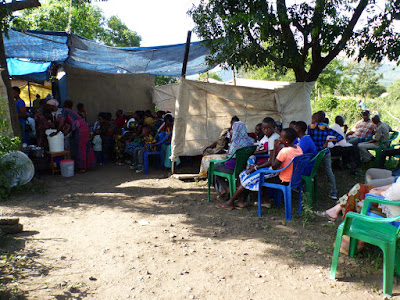Both our workplaces have shut for a couple of weeks. I went to work in the week before Christmas and was often the only one there. I had a couple of small grant applications to prepare and submit so had useful things to do.
We have been otherwise fairly quiet of late. We had lunch at an Indian restaurant with the rest of the Australian volunteers a couple of weeks ago for International Volunteers Day (a couple of days late). Great to catch up.
On Christmas day we woke early and Skyped family who were in the middle of various celebratory activities. Jenny and I exchanged gifts. One of my presents to her was a Giraffe made of metal from her favourite shop Shanga. One of her presents to me was a Giraffe made of metal from her favourite shop Shanga!
 |
| They seem to be getting along well. |
Our Hamilton friends Rob and Lou took off a couple of hours ago to fly to Arusha. We will collect them from the airport tomorrow afternoon and then head off for a two-week safari on Sunday. My next post will be reporting on that.
 |
| Our safari taking in Lake Manyara NP, Lake Natron, Serengeti NP, Lake Victoria and the Ngorongoro Crater. |



















